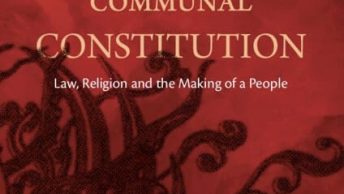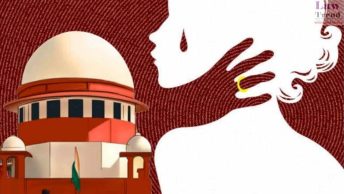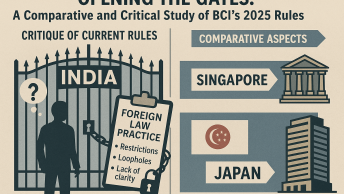Summary: In this final instalment, we present the response by author Prof. Mathew John regarding his latest book, India’s Communal Constitution: Law, Religion and the Making of a People. following...
In this piece, the author argues that the deceased deserve a right to dignity and cautions against the dangers of AI-driven digital resurrections, which could reduce the dead to mere commodities. To...
In this piece, the author argues that the deceased deserve a right to dignity and cautions against the dangers of AI-driven digital resurrections, which could reduce the dead to mere commodities. To...
Blurb: This article maps the four statutory criteria central to the sex-consent matrix, which render consent peripheral while elevating social control and sexual obligation. Thereafter, it reads the...
Summary: In this two-part piece, we present the final review in this book discussion on Prof. Mathew John’s latest book, India’s Communal Constitution: Law, Religion and the Making of a People...
Summary: In this two-part piece, we present the final review in this book discussion on Prof. Mathew John’s latest book, India’s Communal Constitution: Law, Religion and the Making of a People...
The piece argues that the Indian Courts have applied the Community Standards Test inconsistently to test whether a particular statement is obscene. It suggests that the test be replaced by variable...
The piece argues that the Indian Courts have applied the Community Standards Test inconsistently to test whether a particular statement is obscene. It suggests that the test be replaced by variable...
Summary: In this piece, Prof. Nivedita Menon concludes the discussion on her latest book, Secularism as Misdirection: Critical Thought from the Global South, by responding to all the interlocutors...
In Part One, we critically examined the BCI’s 2025 Rules, highlighting the legislative gaps, regulatory inconsistencies, and uneven burdens placed on Indian lawyers. Lessons from Global Legal Hubs It...







